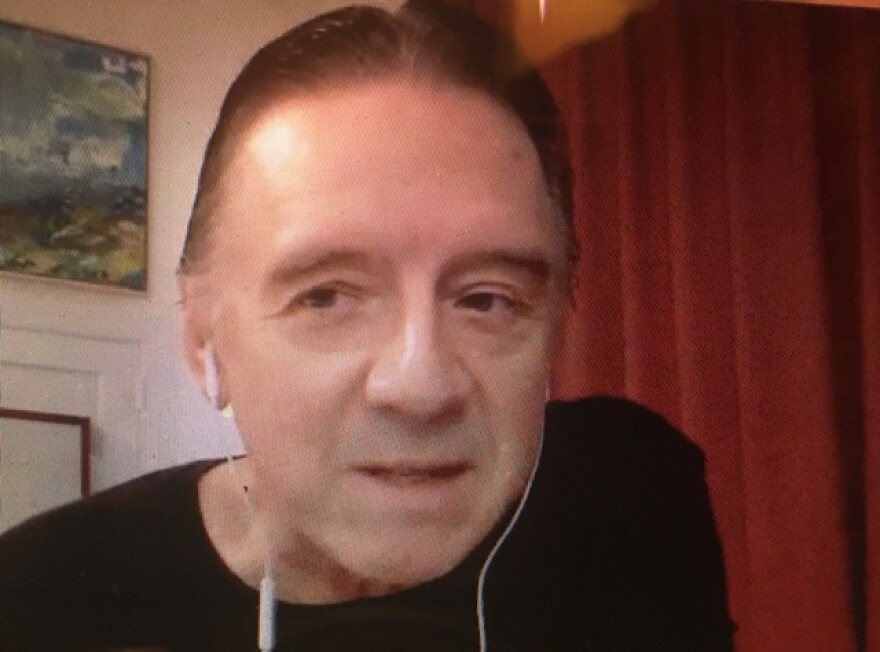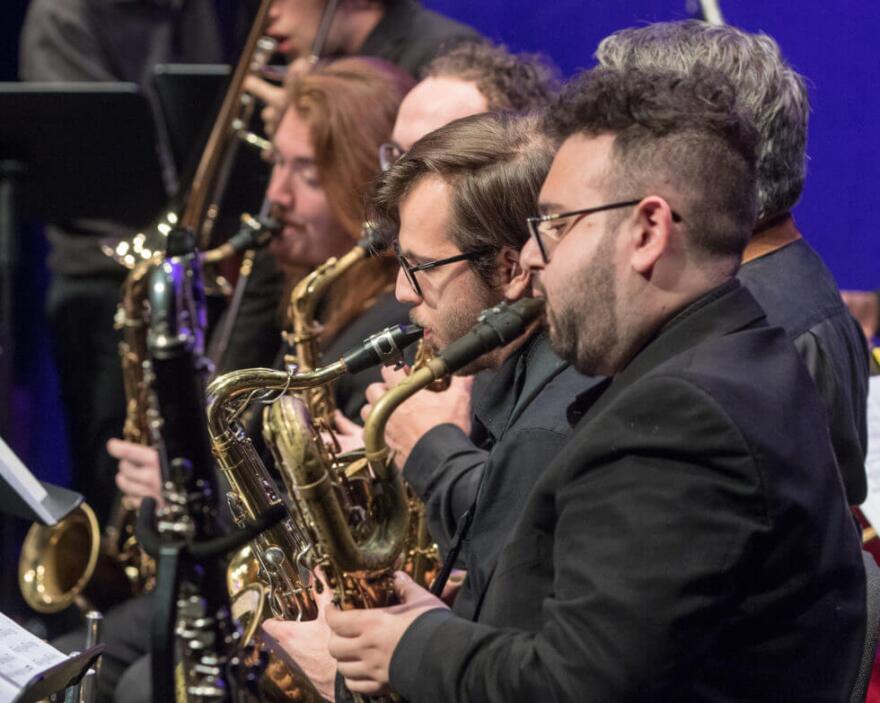Rutgers University's Mason Gross School of the Art's Jazz program is headed by New York-based trombonist Conrad Herwig, who is one of the world's most complete jazz musicians, atop both the perorming and jazz education fields with an abundance of composer and arranger credits.
During the coronavirus pandemic, Herwig's Jazz program is doing its best to maintain some measure of normalcy for his students. With that in mind, the Mingus Ensemble is set to perform 2 virtual concerts this semester, as is the Rutgers Jazz Ensemble. All concerts will be released on the Mason Gross Facebook page as a Facebook Premiere, as well as on its YouTube channel.
Herwig and two of his top students, trumpeter Grace Fox and grad student and tenor saxophonist Evan Kilgore joined WBGO News Director Doug Doyle for a Zoom chat about the program and the upcoming concernts that begin October 28 (with guest soloist Walter White).

Herwig stressed that COVID has been a big hurdle to overcome this semester.
"This kind of hit us, blindsided us in March, obviously blindsided the world this year. The problem was ensembles. How do you virutally rehearse and perform with large ensembles and small because actually not only are we performing with the Jazz Ensemble and the Mingus Ensemble, we're doing 14 concerts? There will be 14 different groups performing. What we did over the summer was, with the faculty, put our heads together for what we call 21st century learning. Part of that is putting these virutal concerts together. So we had a jazz technology camp in August. We have a system in place where we layer the recordings. Jazz is an interactive art form and this can never replace what we do in person. At Rutgers Jazz we are a family. We're going to find a way to have our voices be heard."
Herwig has performed and recorded with Miles Davis, Joe Henderson, Eddie Palmieri, Tito Puente, Frank Sinatra, Joe Lovano and Tom Harrell, among many others. He's released more than 20 recordings as a leader in addition to contributing to nearly 200 other recording sessions.
So what's it like to have a teacher like Conrad Herwig help you create music?

Grace Fox, who is the only female in the program, has major respect for Herwig.
"It's heavy. He's great. Every Zoom call I've had with him. He shows just how much he genuinely cares about our futures and our success. He's just like this powerhouse of information. He just has so much to give and so willing to share his formation with us. He's also just a great guy. It's a good hang."
How difficult has it been for the young trumpeter during the remote experience?
"This is my first year. I'm fresh out of high school. I've only played with two members of both bands so I haven't even seen most players play their instruments. I've heard them. I haven't seen them. It's challenging, especially if there's a high or loud excerpt that I have to play, the sound quality will get distorted because it's just a little microphone and we call that clipping. It's definitely a struggle to record some of these parts."

Tenor saxophonist and grad student Evan Kilgore says it's a unique experience.
"The jazz tech camp. That was so critical to our success because it got every single person on a similar page, hardware-wise and so we all kind of know now how this system, this program we're going to use, basically a cloud-based program almost like Google Drive, but for musicians to input their separate parts. And so that whole system, we got used to it in August, first week in September and then we're just hitting the grtound running. As a tenor saxophonist, really my role is fit within the saxophone section, blend well and then occasionally throw down a solo or two, so it's definitely different than if we were in person. I see it as an alternate skill set."
Herwig praised the efforts of his star players.
"Grace isn't just a trumpet player, she's our lead trumpet player. She's sort of the trend setter. She's setting the pace there and Evan is our tenor sax soloist in the jazz ensemble and we're so proud of their talent and it's exactly what we're trying to do. This is a difficult time but what we realize is that we have this story to tell. We have this cry inside ourselves that has to come out. We're able to give that a life."
All concerts will be released on the Mason Gross Facebook page as a Facebook Premiere, as well as our its YouTube channel. The program is set to also release concerst on October 30 and then again on November 30 and December 2. Each concert will be available at 7:30pm.
You can also go to www.masongross.rutgers.edu/events to learn more about the series.




